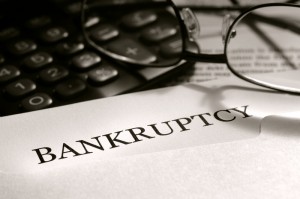 Bankruptcy stops debt collection. The automatic stay prevents collection of debt from borrowers. Once a bankruptcy case is filed, all collection of debt must go through the bankruptcy court. In Chapter 7 cases this means that the creditor will only get paid if they are secured lenders, have priority status, or there are nonexempt assets that can be liquidated for the benefit of the unsecured creditors. In Chapter 13 cases creditors get paid as per the terms of a reorganization plan. Whether or not a creditor gets paid depends on their status and the disposable income of the debtor.
Bankruptcy stops debt collection. The automatic stay prevents collection of debt from borrowers. Once a bankruptcy case is filed, all collection of debt must go through the bankruptcy court. In Chapter 7 cases this means that the creditor will only get paid if they are secured lenders, have priority status, or there are nonexempt assets that can be liquidated for the benefit of the unsecured creditors. In Chapter 13 cases creditors get paid as per the terms of a reorganization plan. Whether or not a creditor gets paid depends on their status and the disposable income of the debtor.
Mortgage deficiencies are unsecured debt. They are treated just like credit cards, medical bills, and pay day advance loans in bankruptcy cases. Creditors holding these types of judgments only get paid if the debtor has nonexempt property or disposable income. In most cases these types of creditors will not get paid at all, or if they do receive payment they are not paid in full.
From the perspective of a debtor, it would be best to not pay a mortgage deficiency judgment at all. The best way to avoid a mortgage deficiency judgment is to file bankruptcy before the foreclosure sale takes place. Once the automatic stay is in effect, the lender cannot seek a judgment against the borrower for debts incurred before the filing date. If the lender does not have a deficiency judgment then they will not get paid in a Chapter 13 case.
In some districts the Chapter 13 trustee will propose to pay the mortgage lender the unsecured portion of the mortgage. The unsecured portion is calculated by subtracting the value of the property as stated in the Chapter 13 plan from the secured claim. The amount left over is the unsecured portion of the claim. In Texas, Chapter 13 debtors need to object to payment of the unsecured portion stating that the creditor does not have a deficiency judgment and is therefore not entitled to payment.